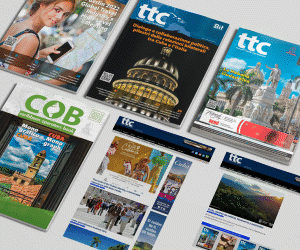By Frank Martin
Good news for international tourism is that more and more countries decide to partially or totally eliminate entry restrictions for travelers who have already been vaccinated against Covid-19-
Better news is that vaccination tourism has just been born.
A still small group of countries have cautiously opened their borders to foreigners who have decided to “combine” good time off to get vaccinated against Covid-19.
This is undoubtedly a lifeline for the universal tourism industry that is suffering a real crisis due to the global pandemic.
Some European nations decided to open up to the initiative.
One of them is the republic of San Marino, the third smallest country in Europe with just 61 square kilometers and 34,000 inhabitants, which launched its own immunization campaign.
The main piece of its offer already opened in early May is the Russian Sputnik vaccine.
San Marino’s hospitals were empty after finishing its own immunization campaign. And then the little republic issued the invitation.
San Marino is not a member of the European Union. That is why without international restrictions he made his decisions quickly.
The EU continues to evaluate the Russian vaccine despite having already approved others such as BioNTEch / Pfizer, Moderna, AstraZeneca and Janssen.
The small state is charging a low price of 15 euros for each vaccine.
However, to receive this crucial medical care, a visitor to San Marino must have a hotel reservation in advance and commit to a second visit to the country between 21 and 28 days after receiving the dose.
For now, the International Air Transport Association (IATA), the global trade group of international airlines, has already approved “no restrictions” support for travelers who are already vaccinated.
That decision is also good news because it encourages international travel and supports certain initiatives, including those of people seeking vaccination in countries other than their own.
Meanwhile, international travel mobility is steadily increasing, and that’s other good news.
An observation from the IATA advisory states that in cases where vaccination is not possible, access to non-quarantine travel must be provided through free and widely available COVID-19 testing strategies.
In the United States, for example, the Center for Disease Control and Prevention have indicated that “with a 90% effective vaccine, pre-travel testing and 7-day self-quarantine provide minimal additional benefit” and therefore lose relevance.
“The real goal is a safe opening of borders to international travel.
This brings tourism one step closer to a world where vaccination and testing allow the freedom to travel without quarantine.
The European Union has already decided to open borders to tourists who are vaccinated against Covid or not but who come from countries with a good epidemiological situation.
Regarding vaccine tourism has been welcomed as one of the aspects of health tourism, which is traveling to other places and countries to receive some type of medical care or wellness treatment.
One problem that is helping this new type of tourism is the slow pace of immunization campaigns.
The US state of Florida is said to be the first to offer a vaccine regardless of place of origin.
But luxury trips to Dubai already included two doses of the vaccine, one on arrival and another after 15 days, within the vacation package. Alaska had also already opened its offers.
The beginning “without warning” or the in-depth study of this practice brought problems in Florida, where cases of fake vaccines and other abuses were reported.
Differents points of view have also emerged about immunization priorities when the country offering the modality still has a high percentage of the population without immunization.
However, one reality is irrefutable: flexibility is gaining ground in the long-awaited post-Covid-19 era.

MORE NEWS











